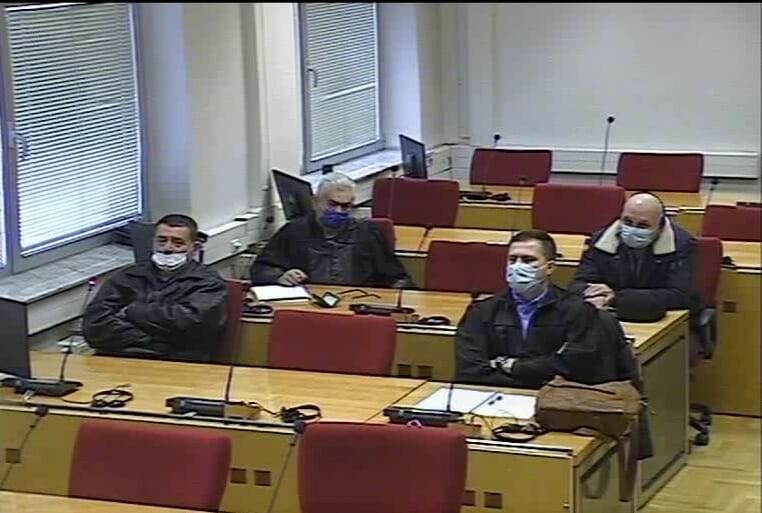This post is also available in: Bosnian
 Milomir Đuričić i Vukadin Spasojević. Photo: Court of Bosnia and Herzegovina
Milomir Đuričić i Vukadin Spasojević. Photo: Court of Bosnia and Herzegovina
The Bosnian state court in Sarajevo found Milomir Djuricic and Vukadin Spasojevic guilty on Friday of a crime against humanity for the abuse of non-Serb prisoners held at the Uzamnica detention camp in Visegrad.
Djuricic was convicted as the warden of Uzamnica from August 1992 to April 1993, and Spasojevic as sergeant of the guards at the detention camp from May 1992 to September 1993.
Under the first-instance verdict, Djuricic was jailed for five years and Spasojevic for 11 years.
The verdict said that Bosniak civilians were held in poor conditions in a hangar, with no heating, no sanitary facilities and no medical care.
“In the specific case, Djuricic was responsible for the conditions,” said presiding judge Stanisa Gluhajic. He added that the conditions at the camp were worse than under later wardens.
Djuricic was found guilty of failing to prevent his subordinates from abusing inmates and forcing them into sexual intercourse. His negligence also enabled paramilitary leader Milan Lukic and members of his unit to come in and beat the detainees.
Lukic, the leader of the Avengers paramilitary unit, was sentenced by the Hague Tribunal to life in prison for the crimes he committed in Visegrad.
Spasojevic was convicted of having forced detained women and men into sexual intercourse and physically abusing them, which was classified as torture. The verdict found that other soldiers watched the abuse and laughed.
In some cases, men refused to rape two female detainees, so the defendant beat them, while in another case, a detainee raped a prisoner out of fear for his own safety. Gluhajic said that although most of the victims of sexual abuse were women, men were raped too.
“These were abusive intercourses, because both women and men were forced into sexual intercourse,” Gluhajic explained.
Djuricic was acquitted of approving the sending of detainees to do forced labour, because the court found there is no evidence that they were abused or starved when they did so, and that some volunteered to go.
Spasojevic was acquitted on 12 counts of forcing someone to commit sexual abuse and inflicting severe suffering. Gluhajic explained that for some of these counts, no evidence was presented that proved the defendant was guilty. For other counts, an acquittal was delivered because witnesses did not testify at the trial and only their statements were read out.
Gluhajic said that a lesser penalty was imposed on Djuricic because of mitigating circumstances including the fact that, in some cases, he demonstrated humanity towards the detainees, and that he was convicted for acts of omission.
As for Spasojevic, the court took into account “his proper conduct in court, him being a family man and his poor medical condition”. The persistent abuse, which gave him pleasure, was taken into account as an aggravating circumstance.
The verdict can be appealed.

